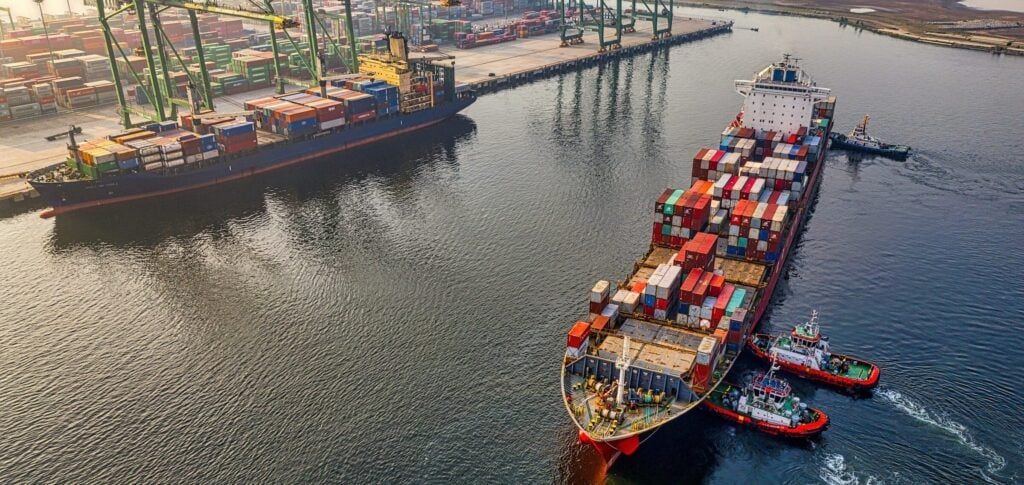“The 80th commission of the International Maritime Organization’s Marine Environment Protection Committee adopts a strategy to reduce greenhouse gases,” the London-based body tweeted.
ADVERTISING
#MEPC80 adopts history 2023 IMO #GHG Strategy to reduce GHG emissions from international shipping. Details to follow. pic.twitter.com/KGoeIvKeGV
— IMO (@IMOHQ) July 7, 2023
The agreement reached foresees the reduction of CO2 emissions “by an average of at least 40% by 2030 compared to 2008”, he added.
The text of the agreement, to which AFP had access, also provides for the reduction of emissions of polluting substances by “at least 70%, aiming for 80% by 2040”.
The objectives, however, are not binding, specifies the pact, reached after a week of negotiations in which 100 countries participated.
ADVERTISING
For several NGOs, the commitment is not enough, compared to the objectives established before the meeting, and is not enough to put the sector on the path to reducing CO2 emissions within the framework of the 2015 Paris Agreement.
Five years ago, the IMO asked transport companies to reduce CO2 emissions by 50% by 2050, compared to 2008 levels.
The European Union demanded, in this week's negotiations, the target of zero emissions by 2050, with two intermediate stages: a reduction of 29% by 2030 and 83% by 2040.
ADVERTISING
Brazil and Argentina against the carbon tax
The Pacific islands, highly threatened by global warming, wanted more ambitious goals and had the support of the United States and Canada: -96% by 2040.
Environmental organizations demand a 50% reduction by 2030 and carbon neutrality by 2040.
Other major exporters, however, such as China, Brazil and Argentina, put the brakes on the objectives, claiming that excessively severe limits would benefit rich countries, to the detriment of developing countries.
ADVERTISING
The governments of these countries were against, among other measures, a carbon tax project, supported by French President Emmanuel Macron and large companies in the sector, such as Maersk.
The possible tax now appears only in the draft text of the agreement as a series of possible measures proposed to reduce emissions.
The vast majority of the sector's 100.000 ships, which transport 90% of the world's goods, use heavy fuel. The sector is responsible for almost 3% of global CO2 emissions, according to the UN.
ADVERTISING
The Marshall Islands representative of the Marine Environment Protection Committee, Albon Ishoda, considered that the new strategy meets “climate warming limited to 1,5 degrees” and directs the sector “towards an equitable energy transition”.
However, he insisted that there is still a lot of work to be done “so that warming limited to 1,5 degrees (…) becomes a reality”, according to the text of his speech, consulted by AFP.
Environmental NGOs were more critical.
“The level of ambition in the agreement is much lower than what is necessary to keep global warming below 1,5ºC. And the wording of the text is imprecise and non-binding”, criticizes the NGO Clean Shipping Coalition.
Ocean Campaigns added that “civil society representatives are deeply concerned that the IMO has failed to bring global shipping into line with the 1,5 degree temperature rise limit.”
Read also
* The text of this article was partially generated by artificial intelligence tools, state-of-the-art language models that assist in the preparation, review, translation and summarization of texts. Text entries were created by the Curto News and responses from AI tools were used to improve the final content.
It is important to highlight that AI tools are just tools, and the final responsibility for the published content lies with the Curto News. By using these tools responsibly and ethically, our objective is to expand communication possibilities and democratize access to quality information. 🤖




